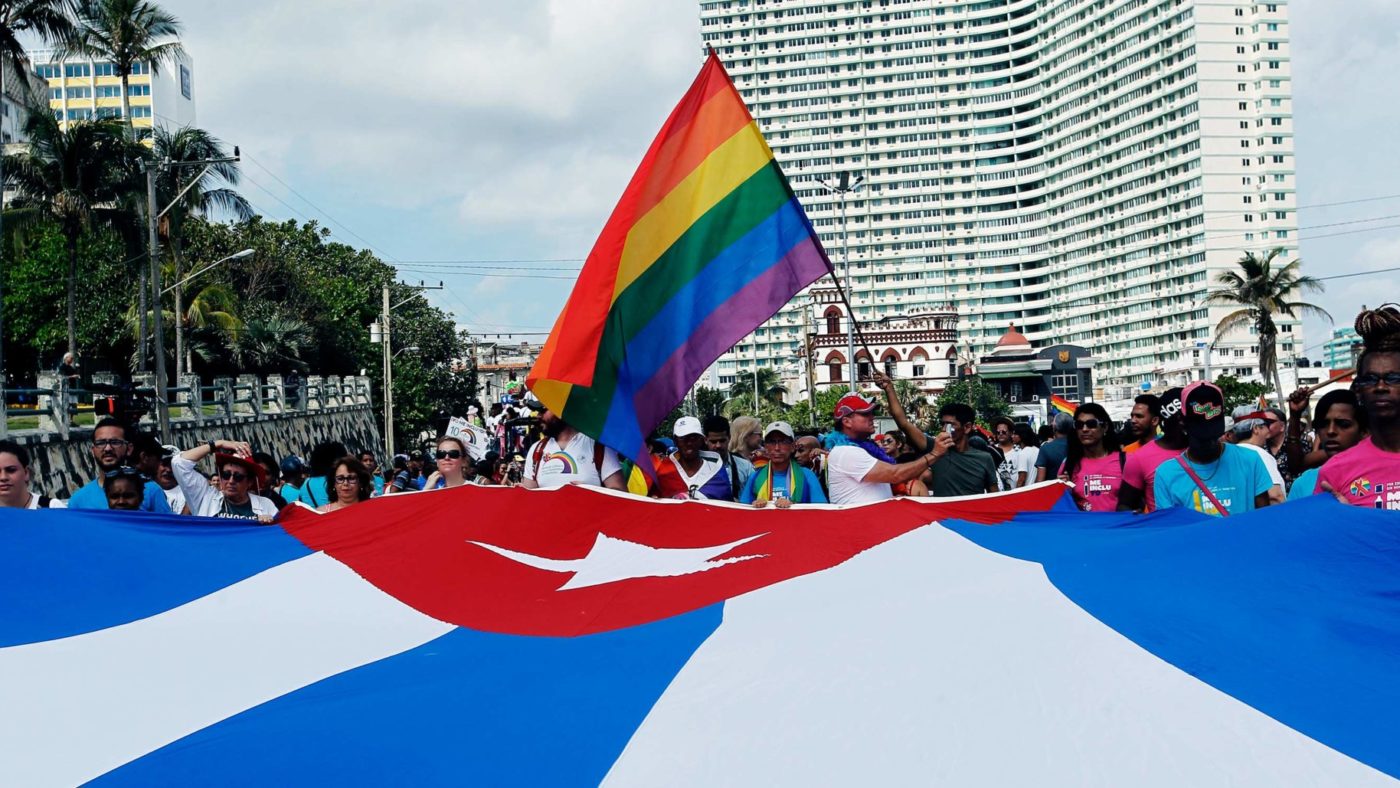A year ago today some 500 Cuban LGBT people and their allies paraded from a famous Havana park down to El Malecon, the seafront. The parade – a ‘conga’ in local parlance – wasn’t a political march, and they had done the same thing on May 11 for many years before.
But in 2019, because of the whims of the Cuban authorities, the conga’s very existence suddenly became political. Before the crowd could turn onto the Malecon police stopped the parade and dived in to pick out and drag away those they thought were the ‘ringleaders’.
For Cuba’s LGBT community, this was their version of the Stonewall riots of 1969 – but for the New York police department and the mafia, read the Cuban Communist Party, regime aristocrat Mariela Castro and her patronage of the CENESEX network – the only LGBT Inc. operation that the revolution has allowed.
CENESEX was set up after Javier Bardem was nominated for an Oscar for his portrayal regime critic Reinaldo Arenas in 2000’s ‘Before Night Falls’. It began as an exercise in pinkwashing the regime’s homophobic history, but became a useful resource and advocate for Cuba’s LGBT community.
It was Castro – the daughter of Raul and niece of Fidel – who had decided the May 11 parade might contain some anti-government elements and should therefore be brought to a halt. That half-hour walk was therefore both a personal rebuke to Castro and undermined any of the good work CENESEX might have done. Castro has clearly taken the snub to heart, calling the paraders “garrapatillas [parasite ticks], who are vulgar servants of the empire”.
To this communist princess the fight against homophobia is “an anti-imperialist, revolutionary fight”, meaning that if you’re not with the party – if you want to conga – then that’s not LGBT activism you’re doing. She even got Cuba’s one gay MP, Luis Angel Adán Roble, fired after he described the paraders as “young workers, students, revolutionaries, many of them known and friends”.
She has also issued an extraordinary defence of the UMAP workcamps to which Arenas had been sent decades earlier for the crime of being a loudmouth queen. “At the UMAPs there were managers who were not homophobic, and who treated their people well,” Castro insisted, even comparing the camps to “holidays in the countryside”.
According to gay journalist Maykel González Vivero, who has been harassed and threatened, Castro is a ‘boss’ who “inspires the same degree of devotion that most of the Cuban people dedicated to Fidel Castro. This cult-like mentality is not how healthy institutions function, but it’s become normalized in Cuba”. However, the events of a year ago, says González Vivero, “liquidated all Mariela’s prestige as an activist”.
Why it matters
Though it might have been brief and only 500-strong, last year’s parade was the most significant rebellion by far in the last 25 years.
As journalist Mónica Baró Sánchez said at the time: “There was repression, seven detainees, but one important lesson remains: Cuban civil society knows how to mobilize to defend the causes that it believes to be just.” The renowned blogger Yoani Sánchez called it “one of their worst mistakes in decades”
Defiance of the regime has been helped no end by the increasing availability of the internet. Since mobile data packages became available in December 2018, activists have been able to get online to organise – including for the May 11 parade. The regime’s threats to go after the ‘leaders’ of these demonstrations miss the fact that these are genuinely democratic exercises, not the kind of stage-managed events the communists are so fond of.
A year on and the regime faces a catastrophic economic and social situation, exacerbated by the refusal to allow anything resembling capitalism. Tourism, one of Cuba’s few money spinners, was already contracting even before the Trump administration’s sanctions – not least because of the quality of state-run tourist services.
The chaos in Venezuela means Cuba has been facing a fuel crisis for the best part of a year, which in turn has left the island facing a chronic food shortage.
Yet the world seems largely uninterested in the plight of the Cuban people. The events of last year drew little attention, even in the LGBT world. Among the few who did notice were gay London Underground drivers, whose union ASLEF issued a resolution condemning the Cuban authorities. The International Gay and Lesbian Association, which is recognised by the UN, had to walk back a report by its Latin American region leaders which repeated the Cuban regime’s line on the conga. Certainly, there has been nothing like the huge protests we saw against Brunei’s oppressive homophobic legislation.
That said, attention can only go so far. American law means US LGBT institutions have a hard time funding like-minded Cuban groups – and activists can’t register any organisation outside the Cuban state’s agreement anyway.
What can the outside world do? Just listening would be a good start. Thankfully, that’s now easier than ever, with a website called Translating Cuba bringing together independent Cuban journalists to give an unvarnished version of what life on the island is actually like.
Click here to subscribe to our daily briefing – the best pieces from CapX and across the web.
CapX depends on the generosity of its readers. If you value what we do, please consider making a donation.


